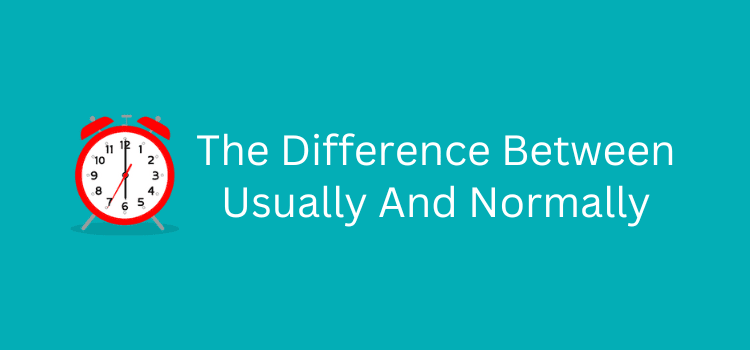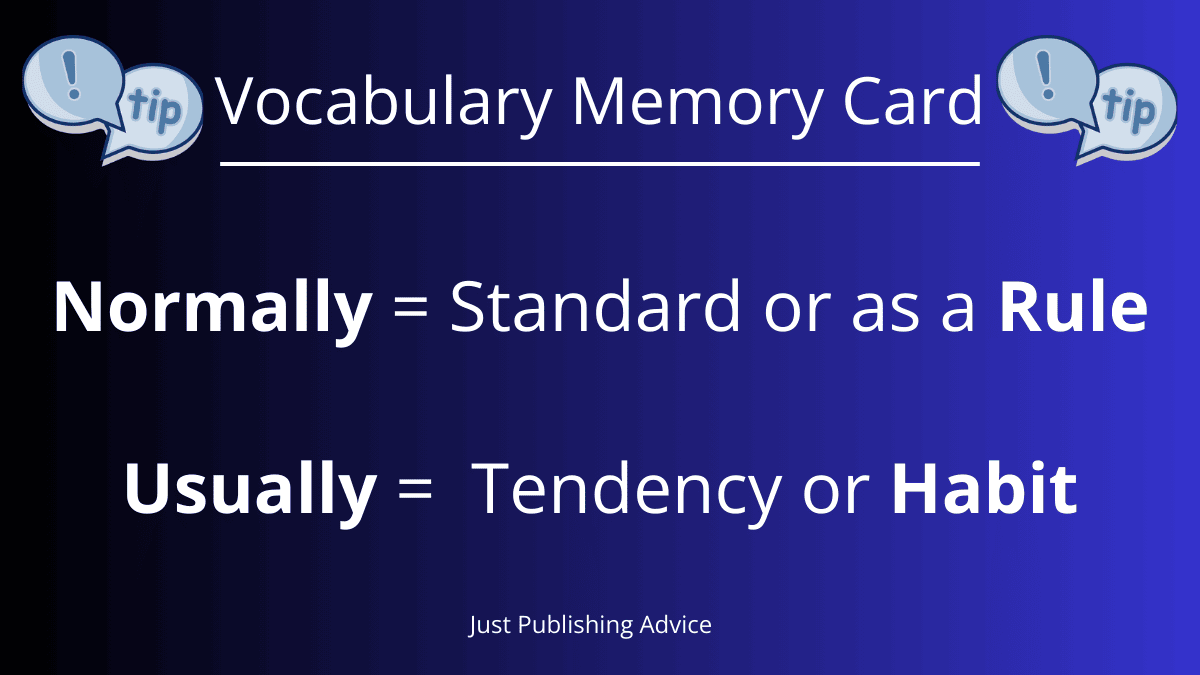
The adverbs, usually and normally, have similar meanings and are often interchangeable.
They both indicate a degree of frequency. But these two words have a subtle difference that can influence their use in different contexts.
TL;DR: Normally refers to an action that is standard or normal or conforms to a set of rules. However, the adverb usually describes or indicates habits or personal tendencies.
But there are times when you can use either one, depending on the context of a sentence.
When usually and normally are both correct

Most dictionaries state that the two words are generally synonyms. But they mainly differentiate them with the following subtle meanings.
Usually – in the way that most often happens or generally.
Normally – under normal conditions or as a rule.
In most cases, the difference is irrelevant.
I usually get up at six o’clock.
I normally get up at six o’clock.
My bus is usually on time.
My bus is normally on time.
In the examples above, it makes no difference which adverb you use.
When it can make a difference
The slight distinction in meaning between the two adverbs can affect your word choice.
When we say something generally happens, it doesn’t mean it always happens but is perhaps more frequent than sometimes.
In this case, usually is often the appropriate choice.
But when it’s as a rule or true under normal conditions, the sense of regularity is far more frequent.
These circumstances might align with established standards or what is considered typical or customary.
When an action or event is almost always true, then normally is sometimes the better option.
Here are two examples where your word choice can make a difference.
We usually order a pizza most Friday nights, but sometimes we go to a restaurant.
In this example, it’s an event that happens sometimes but can have frequent changes to the routine.
I normally arrive at work well before eight-thirty, but there was a train strike this morning, so I arrived late.
In this sentence, it is something that happens as a general rule but with an exceptional change.
Yes, you could easily argue that it’s a fine line.
But there is enough difference in meaning to select the most suitable adverb.
Understanding these subtle differences can help you use these adverbs more effectively.
When there is only one option
While you can use either adverb in most situations, there are times when only one works.
Don’t look surprised if he comes; just act normally.
Don’t look surprised if he comes; just act usually. (Not possible)
Counting of the votes proceeded normally after an interruption due to a computer failure.
Counting of the votes proceeded usually after an interruption due to a computer failure. (Not possible)
In both sentences above, it is impossible to replace normally with usually because you are referring to something that is, as a rule, always true.
More Reading: Using Mistook and Mistaken In Your Writing
It’s your choice
Whether you choose to use normally or usually is up to you.
I can only say that I have a preference for choosing normally when something is almost always true or has a rare or unexpected exception.
For breakfast, I normally have toast and marmalade.
I normally have toast and marmalade for breakfast, but occasionally I have honey.
But for habits that are easily changeable, I would use usually.
I usually get up at around seven. But now that I’m retired, I don’t have a strict routine.
While I usually take the bus into the city, I often walk if the weather is fine.
There are no hard and fast rules, so you could disagree with my logic. But for me, it works.
Summary
Unless there is a particular need, you can interchange either adverb in almost any sentence or context.
You only need to be careful when referring to an action or state that is almost or always true instead of one that is generally or sometimes true.
When it comes to the choice, I usually think about the sense of always or almost always, as opposed to sometimes.
Normally, that helps me make the right choice.
Related reading: Continually And Continuously Are Similar Yet Not The Same
Share This Article


